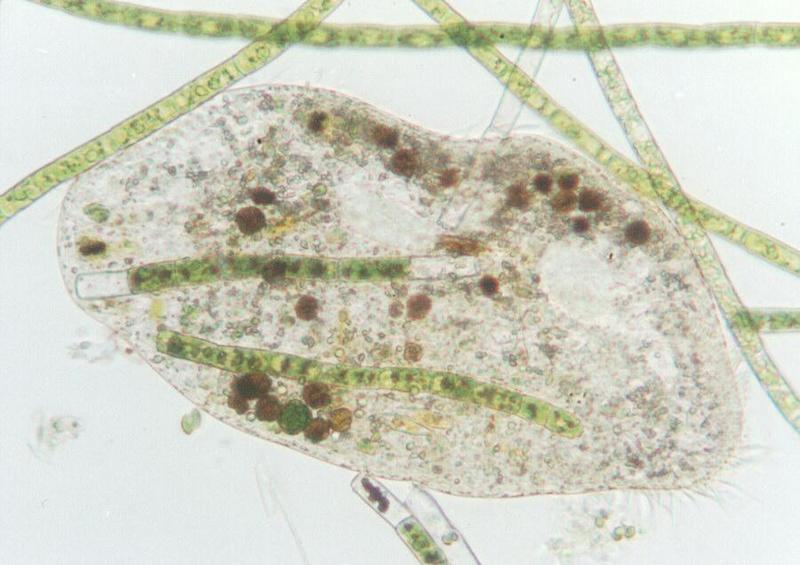|
| Query: ciliate | Result: 3rd of 22 | |
Protozoa - more ciliates - Euplotes
| Subject: | Protozoa - more ciliates - Euplotes
| | Poster: | Schmode (schmode@vossnet.de)
| |

| File size : 76371 bytes
File date : 2000:11:20 11:11:32
Resolution: 900x636
Jpeg process : Baseline
Posted Newsgroups: alt.binaries.pictures.animals
Posted Date: Sun, 24 May 1998 22:59:25 +0200 |
Hi again,
The organism shown here today is an Euplotes.
Euplotes belongs to the ciliate family just as Paramecium, Loxodes or
Climacostomum which I have already been showing here. During the process
of evolution the cilia which enable the ciliates to move have become
bundled and reinforced but reduced in number. This process has giving
them an almost leg-like stiffness providing a superior grip on solid
ground. Euplotes is a perfect example for that sort of cilia which are
also called cirri; in fact, you will usually find Euplotes close to the
ground regions of the water whereas organisms like Paramecium having
smoother cilia prefer the free water. You can see that Euplotes is a
very good eater; apart from numerous small algae being, as their
brownish colour tells, in a progressive state of digestion there are two
large filaments of green algae just having been ingested by Euplotes.
This is just a taster of Euplotes' talents in being photographed. You
will probably have recognized that this shot has been made using
brightfield illumination. Euplotes also looks great in phase contrast
illumination; I'll show you that shot later. The last shot featuring
Euplotes will be to make you familiar with darkfield illumination; this
method ofthen lacks a bit of information about the organism but
definitely makes up beautiful pictures. Just stay tuned for a while; the
shots to come, I promise, are worth watching.
See you,
Ralf
Content-Type: image/jpeg; name="Euplotes.jpg" |
^o^
Animal Pictures Archive for smart phones
^o^
|
|

